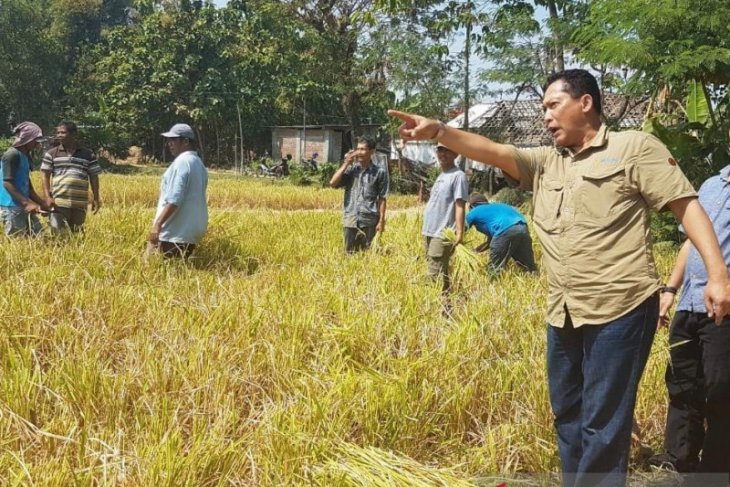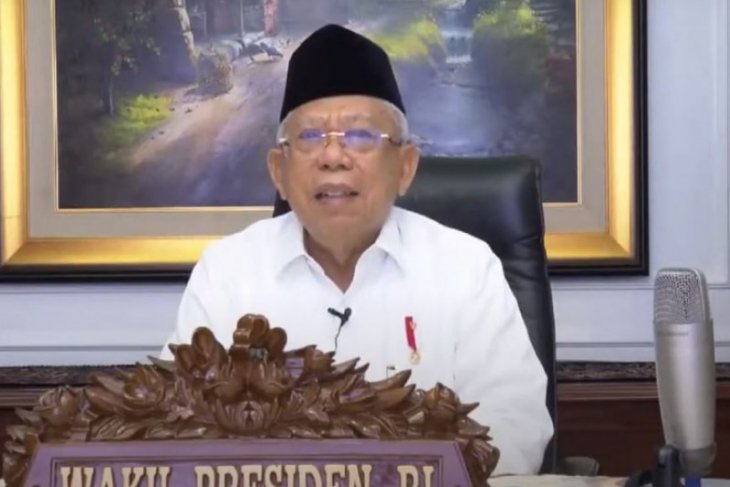Live Streaming
Program Highlight
Company Profile
The Indonesian Ambassador in Caracas Invites Indonesian Entrepreneurs to Take Advantage of Business Opportunities in Venezuela
Written by Ani HasanahJakarta (VOI News) - The Indonesian Ambassador in Caracas, Venezuela, Mochammad Luthfie Witto'eng, said that business or trade opportunities in Venezuela are still very open and can be exploited by Indonesian entrepreneurs. In a special interview with Voice of Indonesia in Jakarta, recently (Monday, 7/20), Mochammad Luthfie said that this business opportunity had not been touched by Indonesian entrepreneurs, probably because of the long distance between Indonesia and Venezuela, causing high costs.
Mochamad Luthfie added that although the Venezuelan population is relatively small and the country is in an economic crisis, they need basic needs such as food and drinks and medicines as well as medical equipment. He invited Indonesian businessmen to try to enter the Venezuelan market because the Indonesian Embassy in Caracas had started cooperation with the Venezuelan government and businessmen.
"We hope Indonesian entrepreneurs try to enter Venezuela. We have started, meaning that the Indonesian Embassy has initiated collaborations or established relationships with business people, whether from the private sector or the government itself," said Mochamad Luthfie.
In addition to basic needs and medical equipment, Indonesian Ambassador to Venezuela Mochammad Luthfie Witto'eng said that trade opportunities that could be implemented in the long term by Indonesian entrepreneurs are the oil and natural gas and mineral industries.
"The rather long-term industry, the oil and gas industry, minerals, is very possible, and that opportunities have actually been indirectly offered to us for cooperation. For example oil. For oil, because of many sanctions from America and so on, they are rather difficult. In fact, if we look at the oil reserves, someone has written that they still can last up to 300 years, but the country is having difficulties in managing its oil now because of the economic sanctions imposed by America. So it hopes for cooperation with other countries, including Indonesia. And that has been conveyed to us," said Mochamad Luthfie.
The Indonesian Ambassador to Venezuela Mochammad Luthfie Witto'eng said that his party was willing to provide information and connect Indonesian businessmen with Venezuelan businessmen and government. (VOI / ADVENT / AHM)
Bio Farma Upbeat about Commencing Sinovac Vaccine Production in 2021
Written by Ani HasanahIndonesia's state-owned pharmaceutical holding, Bio Farma, is optimistic about starting production of the Chinese COVID-19 vaccine Sinovac in the first quarter (Q1) of 2021 if the third phase of the vaccine's clinical trial runs smoothly.
The third phase of the clinical trial, scheduled to run for six months, is expected to conclude by January 2021, Honesti Basyir, the president director of Bio Farma, noted in a statement in Jakarta on Tuesday.
"If the third stage of the clinical trial for the COVID-19 vaccine were to run smoothly, Bio Farma would begin its production in the first quarter of 2021. To this end, we have readied its production facilities at Bio Farma, with a maximum capacity to produce 250 million doses," Basyir remarked.
Bio Farma chose Sinovac as a partner owing to its vaccine platform or the manufacturing method employed by Sinovac being at par with the company's competencies.
Through the use of the inactivation method, Bio Farma has experience in manufacturing vaccines, including the Pertussis vaccine.
A total of 2,400 vaccines from Sinovac, China, had arrived in Bio Farma on July 19, 2020. The Indonesian company plans to start the third phase trials in August.
The COVID-19 vaccine from China, viewed as diplomatic goods, arrived in Indonesia owing to the support of the State-Owned Enterprises Ministry (KBUMN) and the Ministry of Foreign Affairs.
Prior to the clinical trial, the vaccine would be tested in the Bio Farma Laboratory and require to secure several other permits.
The clinical trial of the COVID-19 vaccine will be conducted at the Clinical Test Center at the Faculty of Medicine, the University of Pandjajaran (Unpad), which will handle 1,620 subjects in the age group of 18 to 59 years that meet specific criteria. The rest of the vaccine will be used for lab tests at several laboratories, including Bio Farma and the National Food and Drug Testing Center (PPOMN).
During the vaccine’s clinical trial, Bio Farma functions as a sponsor, collaborating with various parties, including the Health Research and Development Agency (Balitbangkes) of the Indonesian Ministry of Health, as a medical advisor.
In addition to Balitbangkes, Bio Farma is also collaborating with BPOM RI, as a regulator, and with Unpad's Faculty of Medicine, as an institution, with experience in conducting clinical trials of vaccines circulating in Indonesia.
Development of the COVID-19 vaccine is one of the five target programs of Bio Farma in dealing with the spread of the COV2 SARS virus that causes COVID-19. The others are the production of Real-Time Polymerase Chain Reaction (RT-PCR), Convalescent Plasma Therapy, BSL 3 Mobile Laboratory BSL 3, and Viral Transport Media (VTM) Manufacturing. (ANTARA)
July
Bulog Readies Land for Building Warehouse in Food Estate Area
Written by Ani Hasanah President Director of the State Logistics Agency (Bulog) Budi Waseso during a visit to the planned food estate area in Central Kalimantan. (ANTARA/HO-Bulog/sh
President Director of the State Logistics Agency (Bulog) Budi Waseso during a visit to the planned food estate area in Central Kalimantan. (ANTARA/HO-Bulog/sh
State Logistics Agency (Bulog) readied land to build a warehouse in the food estate area under the government’s development plan on 165 thousand hectares in Pulang Pisau, Central Kalimantan, Bulog's President Director Budi Waseso, stated.
The agency is designated as an off-taker for the farmers’ yield to support food self-sufficiency in the nation.
Under the government's food estate establishment project, Bulog will partake in building a warehouse and rice milling plant in the district.
"Of the total 165 thousand hectares of food estate, production has begun in some 48 thousand hectares of paddy field in Pulang Pisau. It means that production will increase, as other areas have entered the planting season. This will become a new source for food self-sufficiency in Indonesia," Waseso stated in Jakarta on Tuesday.
The 48 hectares of paddy field has produced four tons of rice per hectare annually, he noted.
Development of the warehouse and rice milling plant is expected to be completed in the near future and become operational in October 2020, Waseso remarked.
"We applaud the government's efforts to establish the food estate in Central Kalimantan. Bulog, as part of state-run companies in the food cluster, will serve as an off-taker," he affirmed.
Waseso stated that the land for the food estate has offered a new ray of hope for boosting food self-sufficiency in Indonesia and a solution to tackling the threat of food crisis owing to the drought, as warned by the Food and Agriculture Organization (FAO).
Currently, Bulog has 1.4 million tons of rice stocks to meet domestic demand.
The Indonesian government is developing a food estate project in Kapuas District and Belanti Siam Village in Pulang Pisau District, Central Kalimantan Province, under the National Strategic Program (PSN) that will be implemented within the next three years.
In 2020, at least 30 thousand hectares of land will be made available for the project, and the land size will be expanded over the next two years. (ANTARA)
July
VP Highlights Instrumental Role of Superior Human Resources
Written by Ani Hasanah
Vice President KH Ma'ruf Amin
Indonesian Vice President Ma'ruf Amin drew importance to the key role of superior human resources (HR) in winning the global competition.
To this end, improving the quality of human resources became a priority in development programs.
"We face huge challenges in the efforts to boost the capacity of human resources that is the government's top priority," Vice President Amin stated while delivering his remarks at the graduation ceremony of the Open University Academic Year 2019-2020 on Tuesday.
Citing the data of the Central Statistics Agency (BPS) in 2019, Amin pointed out that the number of people receiving higher education opportunities were still quite limited. Amin noted that merely 9.7 percent of Indonesia's population had the opportunity to pursue higher education.
"Of the population of 126.57 million aged 15 years and above that worked, the survey of the National Labor Force (Sakernas) in August 2019 indicated that some 12.27 million, or 9.7 percent, had the opportunity to enjoy higher education and become university graduates," he explained.
In the face of such conditions, Amin noted that the government had continually endorsed greater access to higher education in Indonesia, including through expanding the presence of the open university in the regions.
"The open university also shoulders huge responsibility in the efforts to boost capacity, among others, by encouraging greater access to education, including higher education," the vice president affirmed.
Furthermore, the community's gross enrollment rate (APK) for continuing higher education is yet under 40 percent. Hence, the open university is expected to be a solution to boosting the APK through the distance learning system.
"The open university is expected to improve the APK to become better. This is also in accordance with the government's road map in providing higher education on an unlimited scale and affordable costs for the community," he affirmed.
Indonesian President Joko Widodo, known as Jokowi, highlighted the quality of human resources as the foundation for the nation’s development.
"In future, we must build a foundation of quality human resources, with mastery in science and technology," the president noted through his Instagram account, Jokowi. (ANTARA)




